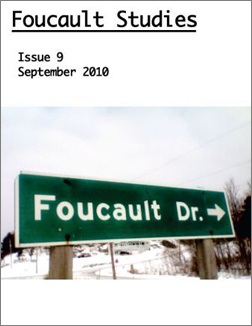Foucault and the Ethics of Eating
DOI:
https://doi.org/10.22439/fs.v0i9.3060Abstract
In a 1983 interview, Michel Foucault contrasts our contemporary interest in sexual identity with the ancient Greek preoccupation with diet, arguing that sex has replaced food as the privileged medium of self-constitution in the modern West. In the same interview, Foucault argues that modern liberation movements should return to the ancient model of ethics, of which diet was a prime example, as aesthetics or self-transformative practice. In this paper I take up Foucault's argument with respect to the Animal Liberation Movement and the dietetics of ethical vegetarianism. Contra Foucault, I suggest that diet has not been replaced by sexuality in the modern West, and that food choices, along with and intertwined with sexuality, continue to function as practices of self-constitution in both disciplinary and aesthetic fashions. I then consider the implications of this argument for the Animal Liberation Movement, exploring ways in which it might (and to some degree already does) take on aesthetic rather than moral strategies in order to pursue what Foucault once described as “an ethics of acts and their pleasures which would be able to take into account the pleasure of the other.”Downloads
Published
2010-09-01
How to Cite
Taylor, C. (2010). Foucault and the Ethics of Eating. Foucault Studies, (9), 71–88. https://doi.org/10.22439/fs.v0i9.3060
Issue
Section
Articles
License
Authors retain copyright to their work, but assign the right of the first publication to Foucault Studies. The work is subject to a CC BY-NC-ND 4.0 license, but despite these restrictions, authors can take for granted that Foucault Studies will permit articles published in Foucault Studies to be translated or reprinted in another format such as a book providing a full reference is made to Foucault Studies as the original place of publication.



